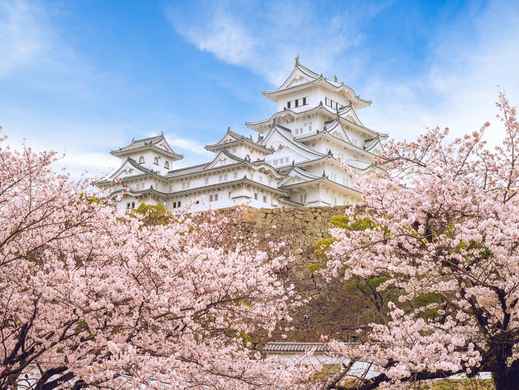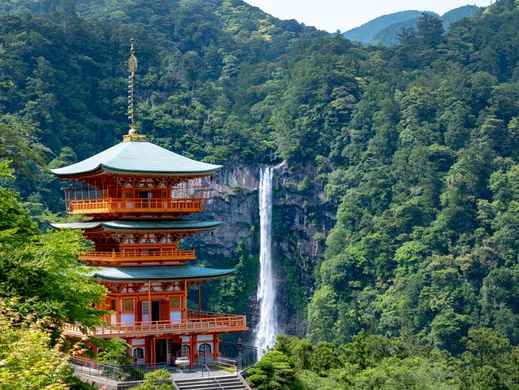


Shikoku
Asia
/
Japan
/
Shikoku
Shikoku, the smallest of Japan's four main islands, is a verdant paradise renowned for its natural beauty, rich cultural heritage, and warm hospitality. Boasting a temperate climate with four distinct seasons, this captivating region offers visitors a unique opportunity to immerse themselves in the authentic essence of Japan. From the ancient pilgrimage trails that meander through secluded mountain valleys and quaint villages to the bustling cities that seamlessly blend tradition with modernity, Shikoku promises an unforgettable experience.
The island's culture is deeply rooted in its spiritual heritage, exemplified by the 88 Sacred Temples that dot the landscape. These temples, steeped in centuries of history and spirituality, have drawn pilgrims from across Japan and the world for generations. Beyond its religious significance, Shikoku is also celebrated for its culinary delights, including the famed Kochi ryori (Kochi cuisine), which showcases the island's bountiful seafood and locally grown produce.
Nature enthusiasts will find themselves enchanted by Shikoku's diverse landscapes, ranging from the towering peaks of the Shikoku Mountains to the picturesque coastlines that offer breathtaking vistas of the Seto Inland Sea. Outdoor adventures abound, from hiking the pilgrim trails to exploring the island's numerous hot springs and pristine beaches. Meanwhile, history buffs can delve into Shikoku's rich cultural heritage by visiting ancient castles, traditional gardens, and museums that preserve the island's fascinating past.

Travel Tips for Shikoku
What you need to know before traveling here
Getting Around Shikoku
A guide to Shikoku's local transportation
Shikoku's extensive rail network, operated by JR Shikoku, provides an efficient and scenic way to explore the island. Visitors can purchase the cost-effective All Shikoku Rail Pass, which offers unlimited travel on local and limited express trains for a set period. This pass is a convenient option for those planning to visit multiple destinations within Shikoku. Additionally, JR Shikoku offers various discount passes tailored to specific routes or areas, ensuring affordable transportation options for all travelers.
Practical Tips for Shikoku
Things to prepare and best way to visit
Shikoku has an extensive public transportation system, including trains, buses, and taxis, making it relatively easy to navigate without a car. The JR Shikoku rail network covers most major destinations, while buses provide access to more remote areas. Additionally, many cities offer rental bicycles, allowing visitors to explore at their own pace.
The Japanese yen (¥) is the official currency in Shikoku. Major airports, banks, and post offices offer currency exchange services, and ATMs are widely available in cities and towns. Many businesses also accept major credit cards.
Shikoku is generally a safe destination, but it's essential to be mindful of cultural norms and etiquette. Avoid public displays of affection, dress modestly when visiting temples or shrines, and remove your shoes when entering traditional homes or certain establishments. Additionally, be respectful of local customs and traditions, and always ask for permission before taking photographs of individuals.
Shikoku is generally a very safe destination for travelers. However, as with any travel destination, it's essential to exercise common sense and take basic precautions, such as being aware of your surroundings and securing your belongings.
Shikoku is famous for its exceptional seafood and locally grown produce. Be sure to try Kochi ryori, a regional cuisine that showcases the island's fresh ingredients. Sanuki udon, a thick, chewy noodle dish from Kagawa Prefecture, and Tokushima's awa-odori dancers who perform in traditional costumes during the famous Awa Odori Festival are also unique culinary and cultural experiences not to be missed.
See All Practical Tips for Shikoku

Explore Shikoku
Create your itinerary with our top picks below

Travel Tips for Shikoku

Explore Shikoku
More Destination Near Shikoku



































 Facebook
Facebook Instagram
Instagram TikTok
TikTok Youtube
Youtube Telegram
Telegram
